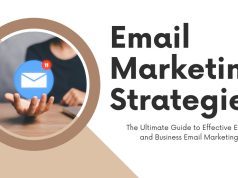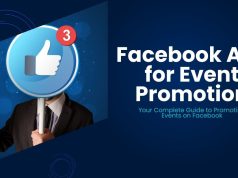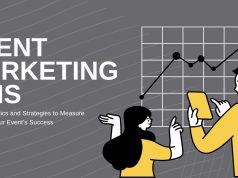Understanding Your Event Marketing Goals

Before you start promoting your event, you need to be crystal clear about what success looks like. Different events require different marketing approaches, and your goals should shape every decision you make.
Defining Success Metrics
Before promoting your event, it’s important to know what success looks like. Are you aiming for ticket sales, brand awareness, lead generation, or community building? Each goal requires different strategies and ways to measure results.
For ticket sales, focus on conversion rates, early bird sign-ups, and revenue per attendee. Brand awareness campaigns should track reach, social media mentions, and media coverage. For lead generation, measure not only the number of leads captured but also their engagement, such as email sign-ups or post-event interactions. Defining these metrics early ensures your efforts are focused and measurable.
Know Your Audience Inside Out
Effective event marketing starts with understanding your target attendees. Go beyond basic demographics to explore their challenges, motivations, and online habits. What problems do they face, and how can your event solve them? Where do they spend time online, and what content resonates with them?
Create detailed buyer personas using surveys, interviews, and social media insights. The more you know your audience, the more your marketing messages will feel relevant and engaging. This helps not only in driving registrations but also in attracting attendees who are genuinely interested in your event.
Pre-Event Marketing Strategies
The months and weeks leading up to your event are crucial for building momentum and driving registrations. A well-executed pre-event marketing campaign creates anticipation and ensures strong attendance.
Create Compelling Event Content
Your event needs a story that captures attention and communicates value. Develop a clear value proposition that answers the question: “Why should someone spend their time and money on this event?”
Create a content calendar that includes blog posts, videos, podcasts, and social media content that builds excitement. Share speaker spotlights, behind-the-scenes content, and preview what attendees can expect to learn or experience.
Leverage Multiple Marketing Channels
Don’t put all your eggs in one marketing basket. Successful event promotion uses multiple touchpoints to reach potential attendees wherever they are.
Email marketing remains one of the most effective channels for event promotion. Build segmented lists and create targeted campaigns for different audience groups. Send save-the-date announcements, early bird promotions, speaker announcements, and countdown reminders.
Social media platforms offer powerful targeting options for event promotion. Create event pages on Facebook, share updates on LinkedIn for professional events, and use Instagram Stories to showcase event preparations. Consider partnering with influencers or industry leaders who can amplify your message to their audiences.
Partner with Industry Influencers and Organizations
Strategic partnerships can dramatically expand your event’s reach. Identify organizations, publications, and individuals who share your target audience and explore collaboration opportunities.
Consider offering speaking opportunities, sponsorship packages, or affiliate marketing programs. Cross-promotion with complementary events or organizations can help you tap into established communities and build credibility.
Digital Marketing Tactics for Events

In today’s world, online promotion is one of the most effective ways to reach potential attendees because it allows precise targeting and measurable results. Digital marketing gives you the ability to connect with the right audience at the right time, track engagement, and adjust your strategy in real time.
Search Engine Optimization and Paid Advertising
Optimizing your event website and registration pages for search engines is essential to attract organic traffic from people actively looking for events like yours. Start by researching keywords that are relevant to your event topic, location, and industry. For example, a marketing conference in New York could target phrases like “marketing conference NYC 2026” or “digital marketing workshops New York.” Creating valuable content—such as blog posts, FAQs, or speaker interviews—helps your site rank higher while providing useful information to potential attendees.
Paid advertising is another powerful tool to drive targeted traffic quickly. Platforms like Google Ads allow you to bid on keywords with strong commercial intent, ensuring that your ads appear to people most likely to register. Effective ad copy should clearly communicate your event’s unique value, such as exclusive speakers, early bird discounts, or limited seating. Combining paid campaigns with SEO ensures that your event gains visibility both immediately and in the long term.
Social Media Strategies
Each social media platform requires a tailored approach. LinkedIn works well for professional events and B2B audiences. Instagram excels for visually appealing events like conferences, festivals, or workshops. Twitter can help you join industry conversations and connect with thought leaders.
Create platform-specific content that encourages engagement. Use event hashtags consistently, share user-generated content, and engage with your community regularly. Live streaming, polls, and Q&A sessions can help build relationships with potential attendees.
Email Marketing Campaigns
Segment your email list based on past attendance, interests, and engagement levels. Create automated email sequences that nurture prospects from awareness to registration.
Early bird campaigns create urgency and reward quick decision-makers. Speaker announcement emails build credibility and excitement. Countdown emails remind prospects about registration deadlines and create final urgency.
Traditional Marketing Methods
Even in the digital age, traditional marketing methods remain important for promoting events, especially when you want to reach audiences offline or build credibility. Print media, such as newspapers, magazines, and trade publications, can provide trusted third-party exposure that complements your online efforts. Local media outlets are especially effective for community events, while industry publications can position your event as authoritative in a professional space.
Networking and word-of-mouth also play a crucial role. Personal recommendations from colleagues, friends, or early registrants often carry more weight than any advertisement. Attending industry meetups, conferences, or community gatherings allows you to promote your event in person, build relationships, and create a sense of anticipation that digital campaigns alone can’t always achieve. Integrating these traditional methods with your online efforts ensures a well-rounded marketing approach that reaches audiences wherever they are.
Print and Media Outreach
Local newspapers, industry magazines, and trade publications can provide credible third-party endorsement for your event. Develop relationships with journalists and editors who cover your industry or local events.
Create press releases for major announcements like keynote speakers, unique programming, or community partnerships. Offer exclusive interviews or early access to reporters who might feature your event.
Networking and Word-of-Mouth
Personal recommendations remain one of the most powerful drivers of event attendance. Encourage early registrants to share their excitement with colleagues and friends.
Attend industry events, meetups, and conferences where your target audience gathers. Don’t just promote your event; participate in conversations, share valuable insights, and build genuine relationships.
Creating Buzz and Building Anticipation

Excitement is contagious, and building genuine anticipation can transform a good event into an unmissable experience. Share sneak peeks, behind-the-scenes content, and early announcements to spark curiosity and create a sense of exclusivity. Interactive campaigns and contests help build momentum and encourage social sharing. For inspiration, see Event Marketing That Actually Works.
Interactive campaigns and social engagement also help build momentum. Contests, polls, and Q&A sessions with speakers encourage your audience to participate and share content, expanding your reach organically. Limited-time offers, early bird discounts, or VIP access can create urgency, making people feel they need to act quickly to be part of the experience. By combining storytelling, interactive elements, and timely promotions, you turn potential attendees into enthusiastic participants who are excited to register and share the event with others.
Speaker and Content Previews
Give potential attendees a taste of what they’ll experience at your event. Share preview clips from speaker interviews, behind-the-scenes content from planning meetings, or sneak peeks of venue setup.
Create “day in the life” content that shows what attendees can expect. Virtual venue tours, agenda breakdowns, and networking opportunity previews help people visualize their experience.
Interactive Campaigns and Contests
Engagement campaigns can expand your reach while building excitement. Social media contests that require sharing, tagging friends, or creating user-generated content can significantly increase your event’s visibility.
Consider running photo contests, question-and-answer sessions with speakers, or prediction games related to your event topic. Make participation easy and rewards meaningful.
Measuring Success and ROI

Effective event marketing requires ongoing measurement and optimization. Track the right metrics to understand what’s working and where you can improve.
Key Performance Indicators
Monitor registration numbers, conversion rates, traffic sources, and cost per acquisition throughout your campaign. Social media metrics like engagement rates, reach, and shares provide insight into message resonance.
Post-event metrics should include attendance rates, satisfaction scores, and follow-up engagement. Calculate the lifetime value of attendees to understand the true return on your marketing investment.
Post-Event Follow-Up Strategies
Your marketing doesn’t end when the event concludes. Follow-up campaigns can drive future attendance, generate testimonials, and maintain community engagement. Send thank-you emails, share exclusive content, and survey attendees for feedback. You can also explore Event Marketing Automation: Boost ROI to see how automation can streamline post-event follow-ups.
Send thank-you emails with event highlights, presentation slides, or exclusive content. Survey attendees for feedback and testimonials you can use in future marketing campaigns. Keep the conversation going with social media recaps and planning announcements for future events.
Making Your Next Event Unforgettable
Successful marketing combines strategic planning, multi-channel promotion, and genuine audience understanding. Focus on delivering value, exceeding expectations, and creating experiences attendees want to share. For professional guidance, see Your Business Needs Event Marketing Agency.
Remember that every event is an opportunity to build long-term relationships with your community. Focus on delivering value, exceeding expectations, and creating experiences that attendees will want to share with others.
Start planning your next event marketing campaign by defining clear goals, understanding your audience deeply, and creating a timeline that allows for strategic, sustained promotion. With the right approach, your next event won’t just meet attendance goals—it will become the kind of experience that people actively recommend to others.
For financial institutions navigating a rapidly digital world, our in-depth analysis examines how digital marketing is being used effectively in the finance sector—covering everything from SEO and paid ads to client trust-building through content.
Frequently Asked Questions (FAQ)
What is event marketing and why is it important?
Event marketing is the process of promoting an event to attract the right audience, generate engagement, and achieve specific business or community goals. It’s important because even the best-planned event will fail without visibility, awareness, and a clear value proposition that motivates people to attend.
How early should event marketing start?
Event marketing should ideally begin three to six months in advance, depending on the event size and audience. Larger conferences and festivals require longer lead times, while smaller workshops may succeed with shorter, more focused campaigns.
Which marketing channel works best for events?
There is no single best channel for all events. The most effective channel depends on your audience, event type, and goals. Email marketing, social media, paid advertising, partnerships, and SEO often work best when combined strategically.
How do you measure the success of event marketing?
Success is measured through metrics such as registrations, attendance rates, conversion costs, engagement levels, and post-event actions. Long-term indicators like repeat attendance, referrals, and customer lifetime value also provide important insights.
Is event marketing expensive?
Event marketing costs vary widely. Small events can be promoted effectively with organic content and partnerships, while large events often require paid media and professional production. Smart planning and data-driven optimization help maximize results at any budget level.
How can digital marketing help promote events more effectively?
Digital marketing enables precise targeting, real-time performance tracking, and personalized messaging. Tools like SEO, paid ads, email automation, and social media analytics allow marketers to reach the right people at the right time with measurable results.









